Garcosta
Member
So you think it may be the circuit board of the dashboard that may be shorting out? Could the fog lights have anything to do with the shorting out when they are on? I drove it with the fog lights off, and the fuse did not blow out.
No I do not. I do not believe that the dash problem has anything to do with the fuse issue.So you think it may be the circuit board of the dashboard that may be shorting out?
I believe that the reason for the indications on the dash doing this is due to a defective ground connection and things are find a return though another circuit in place of that ground. Since the fuse doesn't blow if the fog lights are off, they are where that problem is located.In addition, when I turn on the light switch, the first position are the parking lights. At this position, the only illumination on my dashboard is the trip odometer and the odometer and in the parking light position those are nice and bright. However, when I turn the switch to lights, those 2 indicators go really dim as are the rest of the dashboard lights. It feels like something is not right about that.
I wouldn't call several thousand ohms per inch an "excellent conductor" to 12 volts.since what you deal with is dirty water it is an excellent conductor.
The conductivity of any liquid is not measured in ohms, as that is resistance and it will depend upon what is dissolved in the water and how much distance is between the probes that you measure with. To calculate the electrical conductivity from the resistance, length and area of the current. The resistivity is given as p = RA/l where p is the resistivity, R is the resistance, A is the area and l is the length. The conductivity is s = 1/p where s is the conductivity.The sea water has
I made sure the testing was done all the same way, not trying for an exact reading in ohms, mhos or anything else. For comparison only. I used to live near the ocean, so such a test was easy--but not 100% scientific, of course.The resistivity is given as p = RA/l where p is the resistivity, R is the resistance, A is the area and l is the length. The conductivity is s = 1/p where s is the conductivity.
Since the problem goes away with the fog lights turned off, you shouldn't have too much harness to work through. I would try to follow the power from the fog light switch to the lights themselves. It doesn't hurt to look first at the connections and particularly at ones that plug in but don't overlook the light fixtures themselves as something is probably shorting to ground. The light bulb elements are a relatively high resistance to the 12V supply and that resistance is what limits the amount of current flow (amperes) but if a wire or connecter should contact the frame or something connected to the frame, that would become a return path and the current would be very high, blowing the fuse. If you don't find anything at the fixtures or connection points, next examine anywhere the wire passes through the firewall, or anything that could possibly rub against it. Being only 3 years old I would not expect that there has been any degradation of the wire insulation, as happens with very old vehicles. It could be some poor workmanship that took 3 years to show up.I think I tracked it down to my fog lights but now I’m trying to track down where the connector is.
What type of fuse is it that is blowing, current rating, fast blow, slow blow etc. ?To clarify about the tail/running lights and fog lights, the failure occurs when I’m gettin on the freeway.
Are they stock, as came with the RV?First off, I can’t drive the rv with just the fog lights on.
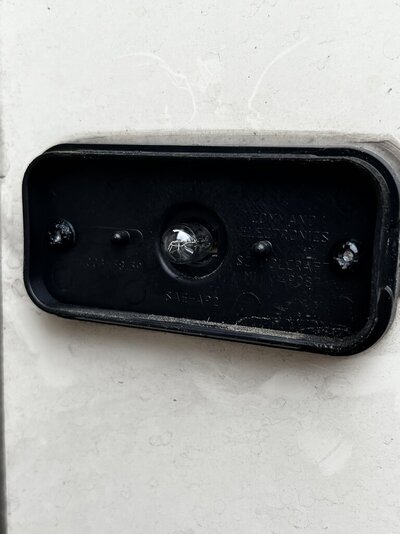
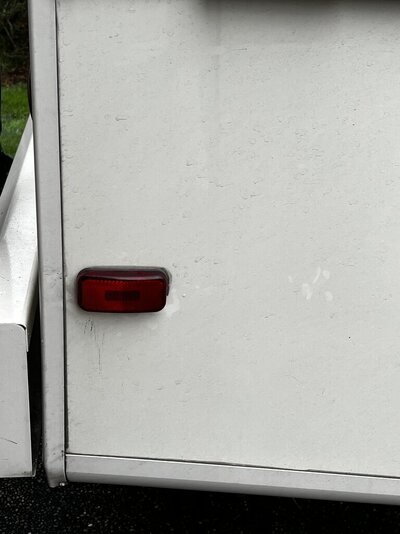
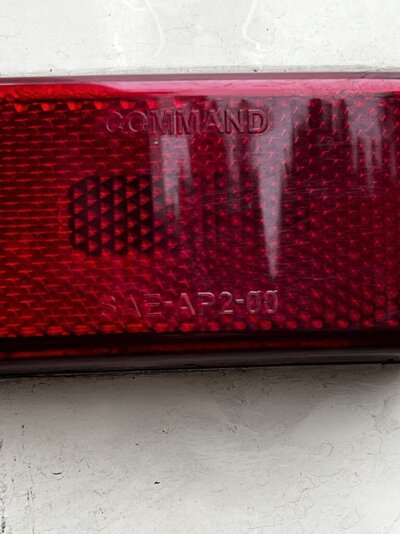
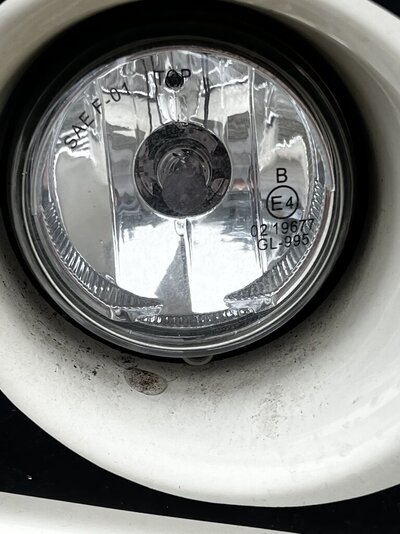
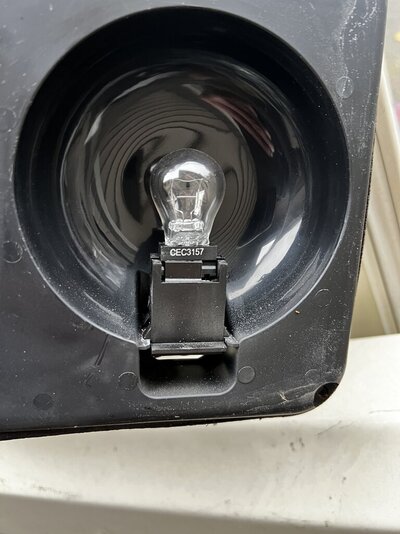
Well, that explains why the 20 amp fuse blows. So one simple fix is to replace the fuse with a 25 amp, if the lamp wire to the fuse is at least 10 AWG or thicker, if you cannot change to LED.So approximately 20.92 Amps ?
Your explanation points directly to a chaffed wire - somewhere in those bundled wires.The fuse is 20 amp mini 2 prong fuse. The only one that fits and according to the specs. Im pretty sure it’s the right fuse. However, I think I have isolated the problem. First off, I can’t drive the rv with just the fog lights on. They are wired to the lights that turn off at the switch. I can only drive without the fog lights while the running lights are on or with the fog lights and while the running lights are on. In the compartment where my house batteries are located there are a huge bunch of wires in what resembles as corrugated plastic that the wires are in with many zip tied together. There are 4 wires not in the plastic sheathing that I wiggled around but no luck getting the fuse to blow with all lights on. I rearranged a bit of about ten sheathings with wires in them that are zipped tied to the frame with non-sharp edges. Plus, I could not see any bare wires in that area touching the frame.
After I zip tied some of the wires together and moved/shifted the big group of wires in sheathing a bit, I took it for another test drive with no failures. I still have not isolated the exact problem so I could get it to fail but right now it’s all working fine.
Thanks for so many of all your comments and recommendations. Wish I could tell you I found the issue but I think I’m getting warm.
